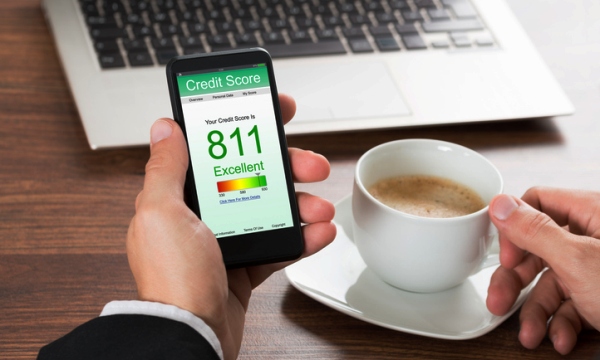7 Ways to Protect Your Credit Score
When you swipe your credit card, you might not be thinking about what your creditors are doing to make sure they recover the money they just loaned you. But, as you make your next purchase, make sure to protect your credit score.
Your credit score is a three-digit number that creditors use to assess how likely you are to repay your loans. A high score can help you qualify for the lowest interest rates and gives you the ability to borrow money for purchases.
Here are seven things you can do to make sure your credit score stays healthy:
Good Habits
1. Pay back your debts on time. How you’ve repaid past debt is the most important factor (35%) in calculating your credit score.
2. Apply for new credit only when you need it. Ten percent of your credit score is determined by how many new credit accounts you’ve opened and the number of times lenders have checked your credit. Another 15% of your score is determined by the length of your credit history. When you add a new account into the mix, the average age of your credit accounts drops.
Co-Signing is Risky
3. Don’t co-sign. Be cautious about co-signing a loan–even for family members–unless you are willing and able to take on the payments later if necessary. If a payment is missed and you don’t pay it, it can negatively affect your credit score;
Make a photocopy or scan the information on your cards. It could take a long time to find contact information for your accounts if you lose your wallet. Keep copies (in a secure place) of the fronts and backs of cards so that you can cancel your accounts quickly when needed.
4. Consider keeping starter cards open. Cards designed for people without a credit history, called starter cards, usually have high interest rates and fees, low limits and few rewards. Even though you’ve stopped using them, it’s a good idea to keep them open. This will help the 15% of your score that comes from the length of your credit history. It also will help the even bigger part (30%) of your score that’s based on your utilization ratio: your credit card debt relative to your total available credit;
5. Guard your personal information. Be very careful when giving out your Social Security number, birth date, credit card numbers and other personal information. Use secure websites, and be cautious on phone calls. Don’t leave paperwork with this information on it lying around–shred it; and
Keep Your Eye on Your Accounts
6. Regularly monitor all your accounts. Even if you don’t use them, check each account to make sure there aren’t charges, such as annual fees, and that no one is fraudulently using your card. Order a free credit report from annualcreditreport.com, the only site sanctioned by the Federal Trade Commission, or, call 877-322-8228. Stagger your reports from the three reporting agencies so that you get one report every four months.
7. Stay diligent. Make sure that the good credit score you’ve worked so hard to build stays that way.
Card Nav is a Great Tool!
Mid Oregon has tools to help you guard your credit. CardNav lets you control your debit cards, monitor their use and fight theft of your information. Mid Oregon periodically offers free community workshops addressing online safety and ID theft (Next: Sep. 18, Parenting in a Digital World).
Contact us via email beheard@midoregon.com, phone (541) 382-1795 or visit one of our 7 Central Oregon branches.
